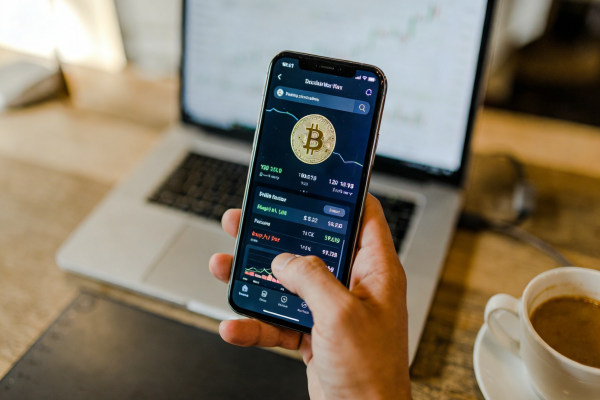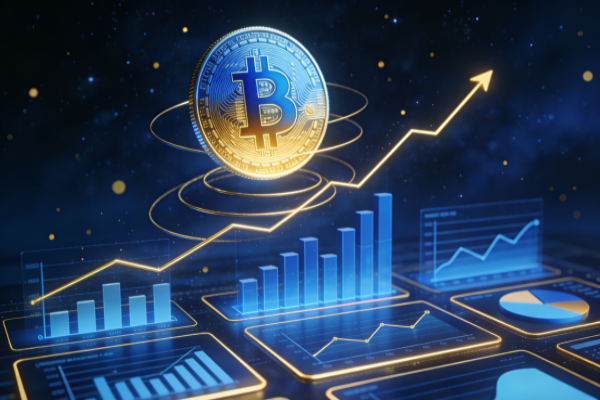Bitcoin has no intrinsic value?
Bitcoin is valued the same way as stocks, gold, and real estate. None of them have any intrinsic value.
Bitcoin’s price has fallen about 25% from its all-time high of $109,000, so the critics are back in full force. Like clockwork.
A common criticism leveled at Bitcoin is that it lacks intrinsic value. This argument is often asserted confidently and with a hint of arrogance by Bitcoin skeptics, as if simply declaring this a fact would settle the debate over Bitcoin’s significance once and for all. Without intrinsic value, they assert, Bitcoin is automatically worthless — end of discussion!
Here’s a recent example:
The “Dividend Bros” who criticize Bitcoin irritate me more than others because they’d rather have less money for income.
Regardless, I thought it would be interesting to respond directly to this criticism, as it’s also a common one in our community.
What is intrinsic value?
According to the Oxford Dictionary, the word “intrinsic” means “naturally belonging to, indispensable to”. So the term “intrinsic value” must mean that the value of an asset is in some way part of its essential properties.
Investopedia defines intrinsic value as:
“…a measure of an asset’s value derived from an objective calculation or complex financial model, rather than from the current market price at which that asset is trading.”
This definition implies that a particular asset has some kind of inherent value that can be objectively discovered in the real world, like determining that water is made up of two parts hydrogen and one part oxygen. Likewise, the value of an asset is viewed as a property of that asset—something defining.
Further reading of the Investopedia page immediately reveals a contradiction.
There is no single standard for how to calculate the intrinsic value of a company or stock. Financial analysts attempt to determine intrinsic value by measuring an asset’s actual financial performance through fundamental and technical analysis.
Wait? Didn’t you say intrinsic value is “objective” but now you’re saying “there is no single standard”? What’s going on?
One common method used by financial analysts and investors to determine the intrinsic value of an asset is a discounted cash flow (DCF) analysis. Basically, they try to figure out what an asset is worth today based on the cash flows it generates, and what they could buy it for in the market. While this approach is “valid” at a point in time, it’s hard to argue that any number you calculate is intrinsic to the asset you’re valuing.
The mere fact that the market trades the asset at different prices is prima facie evidence that the DCF valuation is not intrinsic to the asset itself.
Some assets don’t generate cash flows, yet the market still values them. Why?
Gold enthusiasts often cry foul about Bitcoin’s lack of intrinsic value. Sure, gold is used in commodities like jewelry and electronics, while Bitcoin has absolutely no real-world use. Yet gold’s market value far exceeds its value for its industrial uses.
Real estate investors believe their favored asset has intrinsic value because it can be used as a residence or a place to conduct business. People need a roof over their heads, right? Yet the exact same house or building will sell for a lot more in New York City or on the beach than in some cul-de-sac neighborhood in Oklahoma.
When people say “intrinsic value,” what they really mean is “utility.” Stocks are tied to businesses that generate cash flows, providing the utility of an income stream. Gold provides the utility of wearing precious jewelry and performing calculations. Real estate provides people with a place to live, or a place to vacation.
While these are all true, each person’s perception of the value of an asset and its utility is different.
All value is subjective
It’s all in our mind.
The value of any object, service, or asset does not exist in the thing itself, but is determined by individual perceptions, preferences, and needs. As Austrian economist Carl Menger said:
“Value is the judgment of thrifty people as to the importance of the things they own for the maintenance of their lives and well-being. Value, therefore, does not exist outside of the mind of the person.”
Value does not reside in the physical or tangible attributes of an object—like the gold in a coin or the silicon in a computer—but in the mind of the person. For example, a glass of water may be priceless to a person dying of thirst in the desert, but almost worthless to a person with easy access to clean water. The intrinsic properties of the water itself do not change, but its value changes dramatically based on situation and individual needs. Similarly, a painting by a famous artist may sell for millions of dollars at auction not because of the cost of the canvas or paint, but because people think it is beautiful, historically significant, or a status symbol.
This does not mean that value is arbitrary or meaningless. It is deeply tied to human psychology, culture, and economic behavior. Individuals assign importance based on utility, scarcity, cultural significance, or emotional attachment. This importance translates into our value judgments on specific things. Of course, this applies equally to gold, real estate, and stocks, just as it does to thirsty people’s desire for water or a work of art in a gallery.
When we think about the value of financial assets, everything is speculative. Whether it’s stocks, real estate, gold, or Bitcoin, the value of each asset is primarily derived from individuals’ beliefs about its future value. This belief or perception of future value shapes demand today, driving prices up or down based on collective expectations. Because these expectations change based on economic news, political events, technological innovations, and human psychology, the value of financial assets is inherently speculative and fluid.
Bitcoin Valuation
Hopefully it’s clear at this point:
There is no “intrinsic value” to anything, at least not in the way most people use the term.
Individuals value assets differently and subjectively based on their own perceptions and priorities.
Buying, selling, or holding any asset is a speculation on the future.
Bitcoin is valued in the same way as stocks, gold, and real estate. None of them have anything intrinsic. People look at these assets and decide how much they are worth to them based on the utility and returns they expect to get from owning them.
Over time, the utility provided by Bitcoin becomes clear to more and more people, and they choose to buy and hold it.
The absolutely fixed supply, which cannot be changed by governments, banks, or other powerful interests, means that your share cannot be devalued.
Its digital nature and self-liquidating ability means that it can be transferred to any part of the world at any time and at relatively low cost.
Holding the private key to Bitcoin means that you have unilateral, sovereign control over your wealth, and there is no counterparty risk.
Shifting the discussion to utility rather than intrinsic value immediately reveals the contradictions of critics who rely on this argument against Bitcoin. If value is determined by the utility that an asset provides to an individual, and that utility is obvious, then logically Bitcoin should be of considerable value to many people. This is exactly what we are seeing happen in the market.
Bitcoin is valued in the market today in the trillions of dollars, and this value will increase by trillions as more people discover its utility for themselves.
The price of Bitcoin will continue to fluctuate as people’s understanding of what Bitcoin is, how it works, and the utility it brings continues to change. But there is nothing “intrinsic” about this process for Bitcoin or any other asset.









